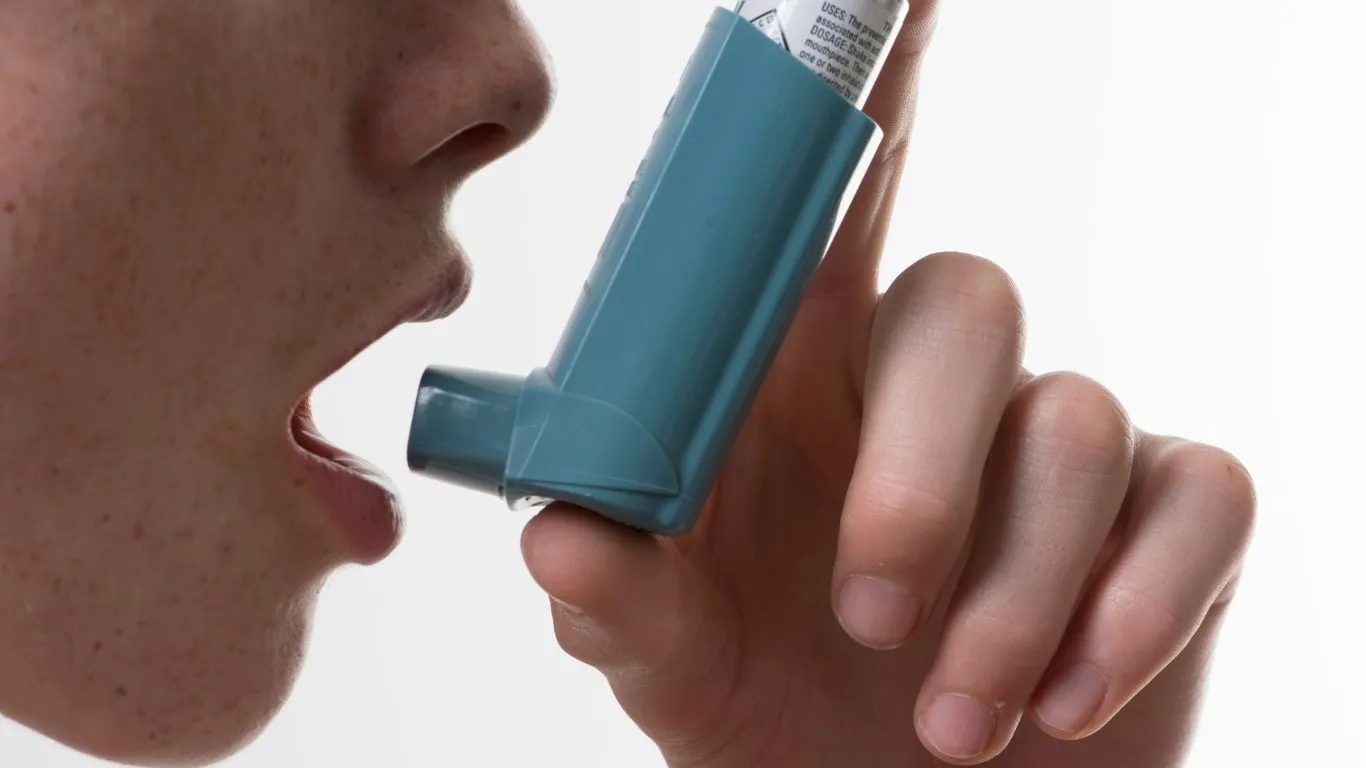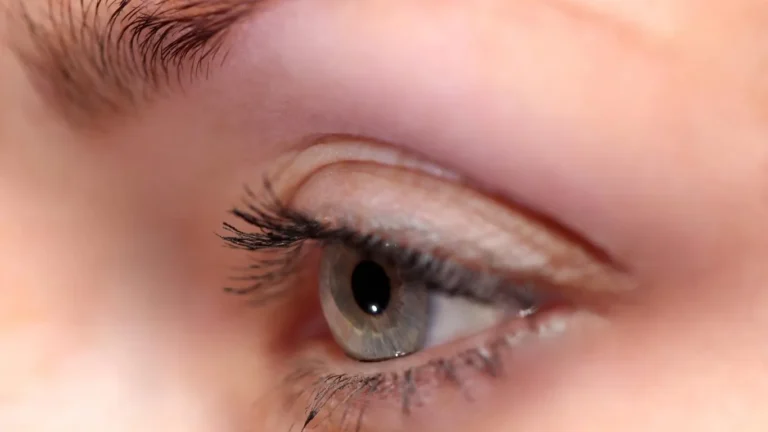Shocking Truth: Can Asthma Cause Random Dizzy Spells?
If you’ve ever been going about your day—maybe folding laundry, chatting with a friend, or just walking down the hallway—and then suddenly felt the room tilt or spin for a moment, you’re not alone. One question I’ve heard more than a few times in clinic is: can asthma cause random dizzy spells? It’s a surprisingly common concern, especially among folks who already manage chronic respiratory conditions like asthma. As a pulmonary nurse practitioner, I’ve had dozens of patients describe dizzy episodes that don’t seem to have an obvious cause. Let’s unpack what might really be going on.
Understanding the Basics: How Asthma Affects Your Body

At its core, asthma is a chronic condition that affects the airways in your lungs. When you’re exposed to triggers—like allergens, cold air, or stress—those airways can swell, tighten, and fill with mucus, making it harder to breathe.
What some people don’t realize is that this struggle to breathe can affect other systems in your body too. When your oxygen levels dip, or your body is working overtime to get air in and out, that can impact your brain, your balance, and even your blood pressure—all of which can absolutely lead to dizziness.
The Oxygen Connection: Not Just About Breathing
Think of your brain like a high-performance engine—it needs a steady supply of oxygen to work properly. If your asthma isn’t well controlled, and you’re frequently wheezing or short of breath, that can mean your brain isn’t getting quite as much oxygen as it needs. Cue the lightheadedness, fogginess, and sometimes even feeling like you might faint.
One of my patients—a 34-year-old woman with moderate persistent asthma—told me she started noticing dizziness while standing in line at the grocery store. No chest tightness. No wheezing. Just this vague sense of floating. After a few tests and digging into her history, we realized her oxygen saturation would drop slightly when she was exerting herself, even mildly. Nothing scary, but enough to cause symptoms.
Can Asthma Cause Random Dizzy Spells? Absolutely—And Here’s Why

The keyword here is “random.” And let me tell you, dizziness related to asthma can feel exactly that—totally out of the blue. But usually, there’s something going on under the surface. It might be:
- Subtle hypoxia: Low oxygen levels that don’t register as an emergency, but still affect your brain.
- Hyperventilation: Fast, shallow breathing (common during anxiety or asthma flares) can cause carbon dioxide levels to drop, leading to dizziness.
- Medication side effects: Bronchodilators like albuterol can sometimes make people feel shaky, jittery, or dizzy—especially if they’re used often.
- Anxiety and panic: These are common with chronic illness. And guess what? They can absolutely mimic or intensify asthma symptoms, including that off-balance feeling.
It’s Not Always Obvious—But It’s Manageable
One thing I always tell my patients is this: Your body is talking to you, even when it’s whispering. If you feel dizzy and you have asthma, it’s worth a conversation with your provider. Sometimes the cause is clear. Other times, it’s more of a puzzle—but one we can usually solve with the right tools.
For example, during pulmonary function testing or a simple pulse oximetry check while walking, we can catch slight oxygen drops or breathing pattern changes. I’ve even had folks wear a home monitor for a few days to track their symptoms in real time. You’d be surprised how often patterns show up where we least expect them.
Common Triggers That May Lead to Dizziness in Asthmatics

Triggers don’t just cause asthma attacks—they can set off a chain reaction that results in lightheadedness too. Here are some sneaky ones to watch for:
- Poor indoor air quality: Think dust, mold, or even strong cleaning products.
- Dehydration: It’s easy to forget that not drinking enough can lower your blood pressure and worsen dizziness.
- Skipped meals: Low blood sugar can mimic asthma-related symptoms.
- Sudden temperature changes: Going from a hot environment into cold air—or vice versa—can trigger asthma and dizziness.
In my own clinic, I’ve had patients keep symptom diaries that revealed a pattern of dizziness shortly after exposure to pet dander or even during strong emotions. It’s not always textbook, but it’s real—and valid.
When Dizziness Means More Than Just Asthma

So, we’ve already answered the big question—can asthma cause random dizzy spells? Yes, 100%. But here’s the thing: just because asthma *can* cause dizziness, doesn’t mean it’s the only possible reason. One of the most important parts of my job is teasing apart what’s asthma, what’s something else, and where the overlap is.
I remember one young guy, a college athlete, who came in swearing his dizziness was just from asthma. But something about his symptoms didn’t quite fit. He was getting dizzy during rest, not activity, and had occasional palpitations. Long story short—we found a mild heart rhythm issue that had nothing to do with his lungs. Two specialists later, he was on a treatment plan and back on the track team.
Moral of the story? Trust your instincts. But don’t self-diagnose everything as asthma. Your body’s got layers, and we need to explore them all.
When to Raise a Red Flag
Asthma-related dizziness tends to feel light, floaty, or connected to your breathing. But if you’re experiencing any of the following, it’s worth digging deeper:
- Sudden, intense vertigo (room-spinning sensation)
- Fainting or blacking out
- Blurred or double vision
- Persistent imbalance when walking
- Chest pain or irregular heartbeat
In those cases, I usually refer folks to a cardiologist or neurologist to rule out anything serious. Better to check and be safe than to assume it’s “just asthma.”
Tracking Your Symptoms: The Key to Clarity

Here’s where your own detective work can really help. One of the most powerful tools we have as clinicians isn’t fancy equipment—it’s your symptom history. That’s where you come in.
I often ask my patients to keep a simple symptom tracker. You don’t need a fancy app (though there are good ones). A notebook or notes app on your phone works just fine. Here’s what I suggest tracking:
- Date & time of the dizziness
- What you were doing right before it started
- Any asthma symptoms (wheezing, coughing, shortness of breath)
- Medication use (especially rescue inhalers)
- Other symptoms (nausea, palpitations, vision changes)
By doing this for even just a week or two, patterns usually start to emerge. Maybe you only feel dizzy after using your inhaler. Or maybe it’s during allergy season. These clues are golden during appointments and can fast-track a diagnosis.
What I Look for in Clinic
When someone comes in saying they feel dizzy and they have asthma, here’s a peek behind the curtain at what I’m considering:
- Are their oxygen levels stable? I check their SpO2 at rest and with walking.
- Any signs of hyperventilation? That rapid, shallow breathing pattern can sneak up on people.
- Heart rate and rhythm—because dizziness can be cardiac too.
- Medication timing and dose. Some people are extra sensitive to beta-agonists like albuterol or levalbuterol.
- Underlying anxiety or stress. Chronic illness is tough, and mental health absolutely plays a role.
And I always ask about hydration, caffeine, sleep, and diet. I know—it sounds basic. But you’d be shocked how many dizzy spells boil down to low fluids or skipped meals. Don’t underestimate the power of the basics!
Managing Dizziness When You Have Asthma

Let’s get into what actually helps. If you’re dealing with random dizzy spells and have asthma, here are some steps you can take to feel better and stay safe:
1. Make Sure Your Asthma is Controlled
First and foremost—if your asthma isn’t well managed, nothing else will work long-term. That means:
- Using a daily controller inhaler if prescribed
- Limiting use of your rescue inhaler (ideally less than 2x a week)
- Identifying and avoiding triggers
- Getting regular follow-ups—even if you feel “fine” most days
2. Practice Slow, Deep Breathing
If you notice you’re breathing fast or shallow when dizzy, try this: inhale through your nose for 4 counts, hold for 2, and exhale slowly through your mouth for 6 counts. Do this for a few rounds. It calms your nervous system and helps re-balance oxygen and CO2 levels.
3. Hydrate Like It’s Your Job
Seriously, drink more water. I don’t mean to sound like your mom, but dehydration is sneaky. It lowers blood pressure and makes you more prone to dizzy spells—especially if you’re already struggling with asthma.
4. Check Your Meds
If you feel off every time you use your inhaler, tell your provider. We might adjust the dose or timing, or even switch to a different type. Not every med works the same for every person. You’ve got options.
Alright—let’s stop here for now. There’s more to dive into, like how anxiety layers into this (that’s a biggie), and when to call for help vs. when to ride it out. But I hope this gives you some real-world, practical insight into how asthma and dizziness are connected.
When Anxiety Adds Fuel to the Fire

Let’s talk about something that doesn’t always get the attention it deserves—anxiety. It’s one of the most common but overlooked causes of dizziness in people with asthma. And honestly? It’s something I see all the time in clinic, even in people who wouldn’t describe themselves as “anxious.”
Here’s how it happens: when you’re having trouble breathing—even just a little—it can trigger your body’s natural stress response. That fight-or-flight mode kicks in, your heart races, your breathing changes, and you might start feeling lightheaded. It’s not “all in your head.” It’s very real. But it’s also treatable.
I’ve had patients who came in convinced their asthma was getting worse, only to realize they were actually experiencing panic attacks layered over mild asthma symptoms. With the right treatment (sometimes breathing techniques, sometimes counseling, and yes—sometimes medication), they started feeling dramatically better.
Clues You Might Be Dealing With Anxiety-Induced Dizziness
- The dizziness happens during moments of emotional stress—even minor ones
- You feel tight in the chest, but your inhaler doesn’t help much
- Your heart feels like it’s racing or fluttering
- You get lightheaded in social situations or while trying to fall asleep
Again, none of this means your asthma isn’t real. It just means there might be more than one piece to your puzzle. And that’s okay. The more we know, the more we can help.
When to Call Your Provider (and When to Get Emergency Help)

Okay, let’s get real: not every dizzy spell is a five-alarm fire. But there are definitely times when it’s more than just a passing thing. So, when should you speak up? Here’s a quick guide:
Call your provider if:
- You’re feeling dizzy several times a week
- It happens after using your inhaler
- It’s interfering with daily life (work, driving, exercise)
- You feel like your asthma is generally harder to control lately
Head to the ER if:
- You faint or nearly faint
- The dizziness comes with chest pain or irregular heartbeat
- You can’t catch your breath, even with your rescue inhaler
- You’re confused, slurring words, or having trouble walking
Bottom line: Listen to your gut. If something feels off, it probably is. And don’t downplay your symptoms—especially if they’re new, persistent, or getting worse.
Tips from the Clinic: What Actually Helps
Over the years, I’ve built up a little toolkit of practical things that help my patients manage asthma-related dizziness. These aren’t magic fixes, but they make a big difference when used consistently.
- Use a peak flow meter: It gives you real-time feedback on how well your lungs are functioning. If your numbers are lower than usual when you feel dizzy, that’s a useful clue.
- Get serious about your controller meds: Even if you “only have mild asthma,” skipping your daily inhaler can catch up to you. Consistency is everything.
- Work with a therapist if anxiety’s in the mix: Cognitive Behavioral Therapy (CBT) has helped many of my patients reframe the fear-dizziness-asthma cycle.
- Stay active—but smart: Gentle exercise like walking, yoga, or swimming can improve your lung function and reduce stress—both of which help with dizziness.
- Know your triggers: For some people it’s pollen, for others it’s stress, cold air, or even strong smells. Track what sets off both your asthma and your dizzy spells.
I know firsthand how overwhelming it can feel when your symptoms don’t quite add up. But you’re not alone. If you’re wondering, “Can asthma cause random dizzy spells?”—now you know that yes, it can. But that’s just one part of the story. The good news? You’ve got options, and you’ve got people (like me!) who are here to help guide you through it.
References
- Asthma and Allergy Foundation of America (AAFA)
- American Lung Association
- National Heart, Lung, and Blood Institute (NHLBI)
- Centers for Disease Control and Prevention (CDC)
- American Gastroenterological Association
Disclaimer
This article is intended for informational purposes only and is not a substitute for professional medical advice, diagnosis, or treatment. Always consult with a qualified healthcare provider regarding any questions or concerns you may have about a medical condition. As a pulmonary nurse practitioner, I share insights from clinical experience, but individual cases may vary.

Bianca Nala is a compassionate Nurse Practitioner with a strong background in primary and respiratory care. As a health writer for Healthusias.com, she combines her clinical expertise with a talent for clear, relatable storytelling to help readers better understand their health. Bianca focuses on topics like asthma, COPD, chronic cough, and overall lung health, aiming to simplify complex medical topics without losing accuracy. Whether she’s treating patients or writing articles, Bianca is driven by a single goal: making quality healthcare knowledge accessible to everyone.






